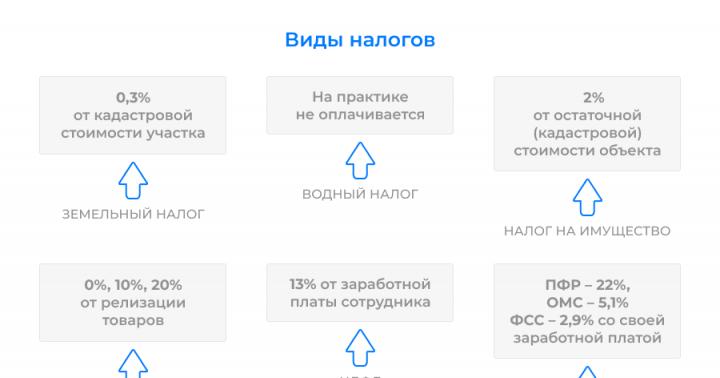On plumbing work, like any other construction and renovation work, a permit is required. It is a permit, not a license, as many say. Since 2010 government agency licensing has ended and control has been transferred to self-regulatory organizations, so the company must have permission from an SRO (self-regulatory organization).
What is a self-regulatory organization and what function does it serve? This is a non-profit organization that must be founded according to the rules established by law. All members (of the company) undergo a strict check before joining, where the reputation of the company, its employees, as well as all the activities of the company as a whole are checked. For each member, a self-regulatory organization is responsible before the law, and if members of the organization deceive consumers and receive many complaints against them, then the organization risks its license (permission to engage in this type of activity).
Therefore, if you are told that the company has license for plumbing work, then specify which one, and if they show you it, then be sure to check the validity period of this license, since it is more likely that you are being deceived.
The Capital Plumbers company has permission from the SRO to carry out all types of repair (including plumbing) and construction work in Moscow and the Moscow region. We provide permit for plumbing work At the first request of the client, as well as after the work is completed, we issue a photocopy of the document with a blue seal. Our company carries out all types of plumbing work, including pipe replacement, installation and replacement of heating radiators, replacement of risers, and other work. After installing water meters, we will definitely issue our permit for hassle-free registration of water meters in the EIRC.
Plumber's certificate we will help you get in the shortest possible time without distraction from production process. The employee receives the certificate itself, a copy of the protocol (extract from the protocol), and, if required, a copy of the license (accreditation) of the training center. You can view the register of required documents.
The article “Plumber's Certificate” was written on the basis of Resolution 1/29, as well as standard instructions devoted to the training and certification of workers and their managers in all areas of production and construction, including construction workers.
Why do you need a plumber's license?
This is exactly the question I often hear from my clients who agree to pay for my services, but want to first understand WHY this is needed.
Let's look at it together with an example plumber's certificate(or rather a plumber).
For a plumber, as well as for other specialists who fall under the category of construction workers (concrete worker, painter, carpenter, carpenter, plasterer, fitter, cement setter, mason, etc. - please check qualification directory) decree 1/29 was issued on educational process in Occupational Safety and Health, where smart Russian ministers wrote in plain English that ALL workers in the construction industry and even their managers should be trained in safe work practices (clause 1.5).
And since a plumber is not a manager, but also an employee and a weak being (from the point of view of injury), therefore he is also obliged to undergo certification and receive plumber's certificate(we’ll talk about how to get a certificate for a professional with extensive experience and without interrupting work later).
Now let's look at the "Standard Instructions".
In addition to the availability of special tools, work clothes and personal protective equipment, there is a mention that a plumber does not have the right to carry out his work duties without having a formalized certificate. plumber certificates.
Using the examples of the two above-mentioned regulatory documents, I think it is already clear that a representative of construction workers (as well as a concrete worker, painter, joiner, carpenter, plasterer, reinforcement worker, cement setter, bricklayer, etc.) cannot do without such an important document. Moreover, due to the lack of a document, not only the manager (clause 1.7), but also the employee himself may suffer (in the event of an injury, he will not receive insurance, his work experience will not be valid, etc.).
Where and how can I get a license for a plumber?

Let's say he simply went down to the subway and got off at another station as a specialist. I think you can guess what method we are talking about, and, as Vitsin said in the old comedy: “From three to five? No, it won’t work.”
Let's look at another option.
According to the same Resolution 1/29, enterprises that have a sufficient number of workers (well, no less than a hundred) have the right to create their own commission, train and certify.
Everything would be fine, but it’s expensive. Where to recruit such a staff? And representatives of the commission must have appropriate education.
Third option for receiving plumber certificates(a concrete worker’s license, a painter’s license, etc.) will be simpler. For these purposes, there are specialized educational institutions where you can send a specialist, and let him gain his wits. It’s an excellent method, there’s nothing to say, but if you go to such an institution without the appropriate connections, then your specialist will have to sit at his desk for at least a month, and then take another exam. At the same time, his workplace will be covered with cobwebs, and customers will run away.
Now we have smoothly arrived at the last method of design. plumber certificates- this is done through an agent!
Such people are usually worth their weight in gold. They value their acquaintance and even quietly boast in narrow circles.
A reliable, proven agent, thanks to his connections, can free your employee from a boring month-long sitting at his desk and issue plumber's certificate(as well as a concrete worker, painter, etc.) without interruption from production in the shortest possible time. Along with the certificate from the agent, you will receive an extract from the protocol, and, if necessary, a copy of the license of the educational institution that directly handled your documents. The only disadvantage of this method is that it is only suitable for professionals with good experience and considerable experience.
Buy a plumber's certificate

You can’t buy a plumber’s license from us, you can get it legally in a few days, without interrupting your work process, and then present it to all authorities for control.
Often people call me to purchase this document, not understanding the difference between purchasing and registration.
An educated person must understand that about any document (it doesn’t matter whether it’s a crust, a diploma, or a receipt from a store) data must be stored for a certain time in some database (data about the same receipt from a store, if it works legally, is saved in the cash register and then transferred to the tax office, where they are stored for some time).
If we are talking about a certificate, then when it is issued, at the same time all data is entered into a specialized protocol (together with the certificate we issue a copy of the protocol), which is stored in the archive for a year.
Any inspector (with the appropriate clearance) has the opportunity to open the archive and check for the presence of a record of the plumber being inspected.
I think you have already guessed that there is no information about the purchased crusts in the training centers, and this is fraught with consequences.
Now what are the consequences?
Let's take a trivial example - verification. The employer did not want to wait a few days and get the certificate legally, so he decided to buy a certificate plumber, and then he will calm down (the employee himself could have done this, it doesn’t matter).
Within a few minutes, the inspector will have on his desk the result of checking the authenticity of documents.
If the forgery is discovered (and this is exactly what will happen), it will not be good for everyone.
The first person to take the cap off will be the employer. In the best case, he will get off with a fine (there will be quite a few zeros), in the worst case, they can close the enterprise and open a criminal case.
Next in line will be assistant managers responsible for labor protection. The result will not be much sweeter than the chapter.
The plumber himself will also be in trouble, but he is a small man, so bribes from him are fine.
And in the event of an accident or injury (God forbid death), no one will get off with administrative penalties.
Therefore, my advice to you is that before you look for where to buy a plumber’s license, maybe it’s better to look for where to get it?
If you choose the second option, then we will help you with this. In a few days you will receive legal documents with all the accompanying attributes.
What other certifications might a plumber need?

During the course of work, in addition to a plumber's certificate, the employee may need some other certificates.
1. To work with power tools (grinder, hammer drill), a plumber must obtain an electrical safety permit of group 2 repair personnel (previously this was called electrical engineering personnel). This certification is supervised and cannot be issued without an inspector. With our help, you can get admission within a week (don’t even look for it faster, because you’ll get a certificate).
2. If the work involves heights (plumbers also sometimes need to climb ladders), or there is a risk of falling, then the employee must obtain a height permit (we resolve this issue in 2-3 working days).
3. At sites where an explosion and fire situation is expected (or simply working with fire), it is better to issue a fire safety certificate for the working personnel (you can also decide with us in a couple of days).
Plumber's certificate sample
The sample plumber's certificate corresponds to the sample of working personnel's certificates. It has a cardboard base coated with vinyl (the color of the vinyl does not matter), as well as a glued block of pages. Size 230mm X 85mm.
The first page contains the name of the training center, full name of the plumber, name of the specialty, and assessment.

The second page is the date of submission, qualifications, signature of the chairman of the commission, seal of the training center.

On the remaining pages, enter data when renewing the certificate (renewal must be done at least once a year, or at the request of regulatory authorities).
Standard instructions for a plumber, Regulation 1/29

The answer to the question of whether an SRO is needed for plumbing work depends entirely on the specifics of the activities being carried out, which can be construction or installation (installation), and on technical characteristics designs.
The approval of an SRO (self-regulatory organization) is required at a dangerous or unique facility, which is included in a special List of Types of Work.
When required
According to the Law “On Self-Regulatory Organizations”, permission is required:
- when performing finishing and other work at particularly hazardous facilities, such as railway, airport, buildings with a height of 100 m;
- when performing repairs during which it is expected to carry out displacement, transfer load-bearing structures, door and window openings, room redevelopment;
- during installation (or dismantling) of a gas pipeline and installation of external sewerage;
- when drilling, drilling and constructing wells.
Joining an SRO is required when there is a need to obtain special permits for certain types of activities specified in the List.
Who doesn't need to join
 According to Menregion Order No. 624, organizations engaged in:
According to Menregion Order No. 624, organizations engaged in:
- repair and finishing of apartments and offices;
- replacement of pipeline parts in residential premises;
- installation and connection of plumbing: sinks, bathtubs, toilets, faucets, etc.;
- repair of plumbing equipment;
- installation and dismantling of internal plumbing partitions (combining or dividing a bathroom).
Conclusion: SRO for plumbing work is not needed if the activity is not carried out at particularly dangerous sites and does not affect the safety of permanent structures.
Important to know: according to Russian legislation Construction and design companies engaged in activities that affect the safety of capital structures are required to join an SRO.
But if a company is engaged in the construction of turnkey buildings and structures, including the installation of plumbing, then before starting work it must obtain permission from a self-regulatory organization.
Is it possible to bypass the intro?
 According to statistics, more than 50% of construction, engineering and design firms do not join an SRO, working under someone else’s permission.
According to statistics, more than 50% of construction, engineering and design firms do not join an SRO, working under someone else’s permission.
How can this be? The fact is that only one of 10 contractors working for one general contractor can have access. The remaining 9 organizations, carrying out their own range of activities, may not appear in the documents.
The second way to bypass joining an SRO is to present the capital construction that is actually underway as ongoing repairs that do not require a special permit. Advanced companies insure liability, allowing you to defend your case in court.
The heads of such companies believe that legal costs are much less than the fee paid when joining an SRO. But it is important to understand that carrying out construction work without SRO approval is illegal.
All about the rules for carrying out plumbing and repair work, see the following video:
You should decide whether an SRO is needed for plumbing work before undertaking the installation or repair of plumbing. The solution to the problem depends on the plumbing services offered and the degree of their “interference” in the structure of the building.
Or look in the section for a list of types of work that require permission from a non-profit partnership.
Plumbing work is legal without SRO approval
SRO approval for plumbing work is not included in the list of mandatory documents that the plumbing contractor must present to the client. But this rule does not apply to all sanitary work.
The following services can be provided without permitting certificates:
- replace pipeline components inside high-rise apartments;
- attach sinks, toilets, bathtubs;
- adjust the operation of plumbing equipment;
- install sanitary partitions.
The same work, but performed at technically complex, dangerous sites, will have to be accompanied by a permitting certificate. Without it, your plumbing company will not have the right to provide such services.
Do I need SRO approval for plumbing work with polypropylene?
To assess whether an SRO is needed for plumbing work with polypropylene, apply the following rule. If you replace old pipes with polypropylene ones, you will have to ordinary apartments, without going beyond their limits, then there is no need to order an SRO permit for plumbing work, the price of which is quite high. If you plan to “cut” parts of the pipeline into the common risers of an apartment building or update common building pipelines, take care of completing permitting papers in advance.
SRO approval – professional level plumbing work
If you have not made sure whether SRO is required, it is better not to start plumbing work. Having learned that your company does not have the proper papers, the customer may not pay for the work already completed, and you will not be able to prove your case even in court. Therefore, consult our lawyers in advance whether you need an SRO permit for plumbing work.


